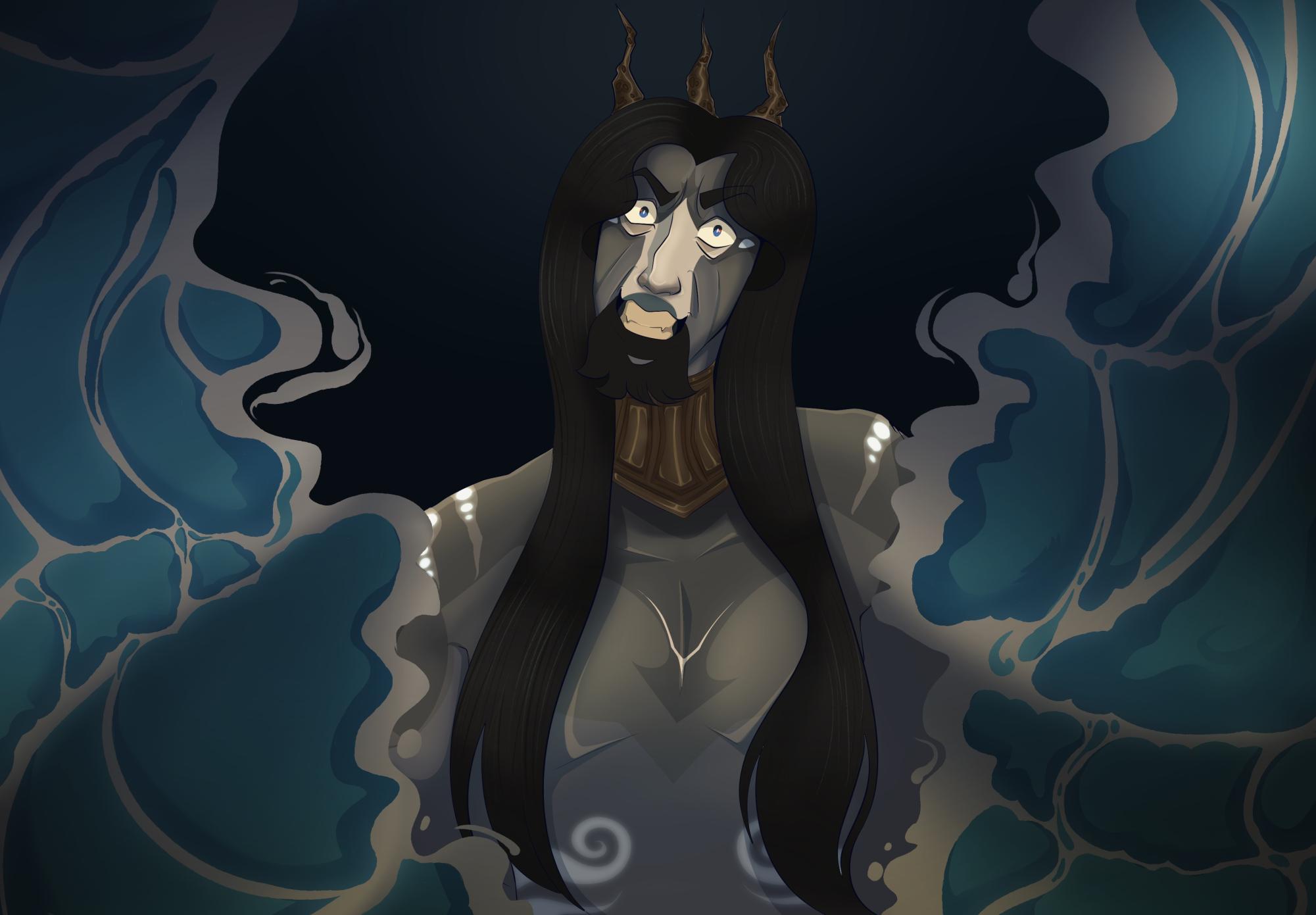
Almost 200 thousand listeners tuned into the “Epic: The Vengeance Saga” listening party. They watched every single animation, appreciated every single moment and all waited for the big unveiling of the new songs.
“Epic: The Musical” is an incredible musical written by the composer, lyricist, and actor, Jorge Rivera-Herrans. It is a loose adaptation of the Greek epic “The Odyssey”, portraying the 20-year journey of the hero Odysseus from the trenches of Troy to his home. Its release was on Oct. 30, 2024, at 11 p.m. and left all fans shaken.
Five songs were added to the new saga. In order, they are: “Not Sorry For Loving You,” “Dangerous,” “Charybdis,” “Get in the Water,” and “Six-Hundred Strike.” These all feature the return of many beloved characters and performers.
After the ten years that Calypso and Odysseus have been stuck on the island, a god finally comes to explain that Odysseus is leaving. Calypso is heartbroken and attempts to justify her actions throughout the years they’ve been there.
In the first song, “Not Sorry For Loving You,” Calypso returns after her brief mention in “Love in Paradise.” She said that “someone arrived today | they said they’re taking you away,” indicating that Hermes contacted her to tell her of Zeus’ decision. Seemingly, after “God Games” he settled on freeing Odysseus from her island.
Odysseus is one of the only people that Calypso ever will know due to her curse. The island that entraps her means very few people will know her. In the song, she said, “you’re unlike anyone I have ever known [because] you’re all I ever [know].” Calypso begs Odysseus to stay while justifying her 10 year treatment towards Odysseus. This was shown in the verses, “for that, I’ll say I was wrong | And if you hate me| Then I am sorry my love’s too much for you.”
Right after, Calypso says the refrain, mixed with the ensemble, “But I’m not sorry for loving you.” Throughout the entire song, she repeats that theme, trying to get Odysseus to stay with her.
The song ends with a heartbroken and delusional Calypso saying her last line, “Why in the world won’t you love me too?” This referenced Odysseus’ choice of loyalty to his wife.
“Not Sorry For Loving You” is an amplified version of Calypso’s section in “God Games.” The listener can fully analyze the character’s instrumental and musical signature.
Her representative elements include the steel pan and hand drums showcase their full capability as they open the song alongside the voice of the nymph-goddess, Barbara Wangui. As the song plays, the background reveals that Odysseus is trapped on a perfect island.
As the song progresses, the arrangement shows many musical elements from Hispanic countries, including beats, drums, and rhythms from reggaeton and salsa. However, these are not the only ones.
A style of Caribbean music called Calypso, just like the character, is also referenced. This happens through the fact that the vocal line of the chorus matches the crucial rhythm of this genre.
“I wanted to incorporate some aspect of actual calypso music,” Herrans said in one of his videos. “And, if I understand correctly, this rhythm is a crucial part of that genre.”
Transitioning away from the styles, it is worth noting that the common theme of gods having choruses is back in full swing. In one of Herrans’ videos, he said “[I added some choir vocals] because Calypso’s presence is heavenly.” This helped remind the audience gods can summon their own choruses.
Finally, the outstanding element of this song was certainly its vocals. Wangui and Herrans managed to show such a range of both emotions and vocal talent that is only describable if by listening to the song.
One element that immediately comes to mind is Wangui’s beautiful performance. Especially in the last few verses of the song, where she displays Calypso’s anguish through her vocals. Wangui’s voice is incredibly clear and, even when she is not focusing on it, listeners can hear her character’s intentions.
Hermes arrives down to tell Odysseus his long journey ahead of him to return to his hometown, Ithaca.
With Odysseus sent out on an adventure through the Mediterranean Sea, listeners arrive at the second song, “Dangerous.” He starts by reflecting on the fate of his crew of six hundred men and “how will [he would] reach my homeland?” And then Hermes arrives with the iconic line, “All you have to do is not open this bag.”
Odysseus gets the revelation that Hermes was the one who talked to Calypso and was the reason he managed to be free. The listeners hear the lines from Odysseus, “If your plan’s so great // then why’d you wait to say it?” from Odysseus, and, shown in the title, Hermes responds with “Well, it’s a little bit dangerous, my friend.”
After an eventful chorus, Hermes explains his journey in “uncharted waters.” He adds that he should put it “all it on the line” and tells Odysseus that he should not be afraid to take risks. At the end of the song, the listeners hear the protagonist thank the God. He responds with “Don’t thank me, friend, | I’m not the one who fought for you,” referencing Athena from “God Games.”
“Dangerous” is the song in this saga that is arguably the catchiest. As all songs by this god have upbeat harmonies and high tempos, they bring a sense of dynamism and fun into the music.
“Anyways,” Herrans said. “In a show that’s full of bloodshed and death, Hermes is a character that allows me to have some levity, […] so I like to make his songs a little groovy.”
But this isn’t the facade listeners meet in the start of this song.
As the nylon guitar of Odysseus’ emotion starts to play, spectators face a familiar melody, the “Full Speed Ahead” motif. In this version, listeners see that all his actions in the past still affect him. Despite embracing the monster inside of him, Odysseus still feels regret for having lost all his comrades.
One heartbreaking detail is the silence after the line “‘cause I had one goal in mind,” as if Odysseus was still waiting for the comforting presence of his crew to finish the lyric.
However, Hermes’s entrance marks a more upbeat change in the song. His elements, such as his instruments (‘harps and arps” (or arpeggios), as well as the piano, bass, and drums), are integrated into the song.
On the topic of instruments, it is also worth noting that Hermes no longer has a lyre in his arsenal, as it now belongs to Apollo. This is a reference to the god of thieves’ birth myth, where he exchanges the lyre for Apollo’s cattle (which he had stolen in the first place).
As Herrans said, “He no longer has the lyre and [the instrument] can be heard in Apollo’s music.”
Another interesting detail is how Hermes and Odysseus borrow other characters’ melodies in this song, using Aeolus’s and Hermes’s respectively.
Hermes references “Keep Your Friends Close” in this song by using their exact motif and specific character instruments (the flute, breathy vocals, and winions) to reveal the challenges of Aelous’ second windbag.
When Odysseus uses Hermes’ theme, he uses it as a way to display his cunningness and will to keep going, returning to the character after 10 years stuck away from his home.
Odysseus meets Charybdis in hectic waters and announces his tactics to beat the monster and move on.
After the encounter with Hermes, spectators hear a growl from the water, and a monster named “Charybdis,” a giant sea worm that swallows water and spits it out in whirlpools, appears. The listeners quickly learn that Odysseus “already knows [its] tactics,” and knows its entire attack plan.
Odysseus also mentions his plan by stating, “I don’t even have to kill you, I just have to avoid you.” This song is dramatic and tells the story of how the last known foe is blocking his way back to his kingdom.
After the defeat of Charybdis, Ithaca enters his sight, stating, “There, I see it, The island I’vе been searching for.” Intending to see his wife and son again almost in his grasp, he said, “I am on my way, I’ll be there today.”
At the end, Odysseus looks at the water and shrieks in horror “No, no!”
From the very beginning of “Charybdis,” it is clear that this was the start of another “boss battle” in Epic. But another reference that many can recognize is that the harsher starting beats of the song resemble those from the movie JAWS.
When speaking on the musical aspects of it, Herrans mentions that this was a very challenging song for him to write. He “wanted to make this monster [Charybdis] different from all other monsters in Epic,” and he did this by making it in a five/four signature.
“The one idea that kept coming to my head,” he said “[was this idea that] Charybdis throws Odysseus’s balance off, the same way 5/4 initially threw my balance off.”
This resulted in a catchy rhythm that makes this song unforgettable.
The instrumental for this song is very complex and has many contrasting elements that make for a true masterpiece.
“Big, giant battles like this are some of the moments where epic really gets to shine,” said Herrans.
The element of danger is present throughout the entire battle with Charybdis. From choruses and choirs to drums and electric guitars, this song is filled with a catchy beat that is hard to forget.
One element that is worth mentioning about the electric guitar is how it highlights Odysseus’ cunningness as he faces his foe.
As the song transitions away from the battle and to the moment he finally sees Ithaca after 20 years, the melody completely changes as well.
The electric guitar that represents his cunningness becomes a gentle nylon guitar, and the viola, Penelope’s instrument, enters the play as Odysseus thinks of his wife.
It is worth noting that in this section of the song, the melody is simpler than the previous one. This might be a way to show Odysseus ignoring all signs of the sea (the trumpets during Charybdis, strong wave sounds that mimic the ones in “Ruthlessness”), thus making an opening for “Get in the Water.”
Poseidon comes from the ocean and fights with Odysseus in a long battle over drama from the past.
The god of the ocean and storms arrives from the belly of water along with the fourth song: “Get in the Water.” The tone sets as the first lyrics appear, “There you are, coward.”
During the first verse, Poseidon mentions “[he’s] got a reputation, [he’s] got a name to uphold.” This is about how during their first encounter, Odysseus swiftly escapes from Poseidon’s wrath by opening the foretold windbag. Meaning that Poseidon needs to kill Odysseus or the rest of the gods will see him as incapable.
With the main line spoken, spectators realize why Odysseus needs to “Get in the water.” Due to the fact Odysseus is on a boat, Poseidon can only use force, with him in the water, he can kill him with a swift strike.
Poseidon speaks a line that is common in almost all the sagas, “Ruthlessness is..Mercy upon..Ourselves!” and quickly knocks Odysseus down to the ocean where listeners meet familiar faces. Polites, Eurylochus, Anticlea (his mother), and the crew of six hundred singing to the end of Odysseus’s life is what you see…or so you think.
“Get in the Water” immediately extinguishes any hope the listeners might have gotten from “Dangerous,” as it marks the arrival of both Odysseus’ arrival to Ithaca and the final battle that might keep him away from his home.
The mixture of low synths and piano sends a feeling of dread, emitting a contrast and distortion which immediately brings the audience back to “Ruthlessness.”
Steven Rodriguez’s line “There you are, coward” breaks this simple but effective melody. Leading to the listener plummeting into a variety of high and low sounds, distorting their senses and instilling the same feeling as Odysseus would be facing.
Poseidon’s first lines are always followed by the low, frightening synths as well as his instrument, the trumpet, following his lyrics. This is a brilliant example of Herran’s storytelling, where he uses fewer instruments to make the audience feel as if something is missing, to transmit the main character’s fear into a palpable sensation through music.
One small but effective detail is that when he starts to vocally threaten the protagonist, a heartbeat sound appears amongst the instruments, which is another method to show emotion through musicality.
One incredibly complex aspect of the song is when Poseidon uses his power, called Shatter the Ocean, where all musical aspects of gods are joined together and the listener can tell that something grand would be annoying on stage.
The synths and electrical instrumentation are a carrying aspect of his, where magic is represented by these elements, and the sudden transition from low to high-pitched sounds does sound as if a god is lifting the ocean to bury his foe in the depths.
The close-off of this song is as heartbreaking as the beginning. Where the threat of Poseidon is temporarily forgotten, for all his instrumentation is replaced by a comer piano, and the voices of all those who he held dear and were deceased come back to hold him.
It is interesting to see this shift in the crew, where once they hated his voracity to return to Ithaca, and now that they passed away, they return for a moment to try and give him hope to continue.
After being defeated by Poseidon, Odysseus opens the windbag, defeats Poseidon, and tortures him brutally.
Welcome to Odysseus’ villain arc, with the fifth song, “Six-Hundred Strike! ” and the opening of the windbag, a fight is on its way. With the spoken lines “’Cause I will get back to my son and I will get back to my wife,” the rage and passion are felt behind Odysseus’ voice, and drama is about to go down. After the war against themselves, Poseidon is defeated, and he remembers the mistake Odysseus made, “You sealed your fate just to bеat me, You released my storm when you opened that bag, Blocked your one way home, Now you’ll never get back.”
Odysseus threatens Poseidon to call off the storm, and he doesn’t oblige, “Or what? You can’t kill me.” Then Odysseus picks up his trident and brutally stabs the god as screams of pain are released. With repeated stabs, and bashing Poseidon’s actions and beliefs, Odysseus and Poseidon say-
“How will you sleep at night? Next to my wife.”
Six-Hundred Strike was surely the song listeners had the least information about coming into this saga. Herrans is infamous for his “snippets” of the musical, where many sections of the songs were shown as a method to share his work and build a community around it.
But, this song is an exception. The only known snippet was the line from Odysseus that said “I don’t think you seem to get it, // I can’t afford to die // ‘cause I will get back to my son // and I will get back to my wife!,” and this was for good reason, otherwise the surprise “Six-Hundred Strike” brought would have been lost.
The first half of the song is filled with a high of Odysseus’ electric guitar, drumming, and high-pitched synths, highlighting once again his wits and speed to come up with a plan.
The synths from the moment he opened the bag were also really unique and similar to Aeolus’ characteristic two-person chorus, indicating that once again their presence was near and that the storm was freed.
Herrans’ vocals were outstanding in this part, he once again shows how wide his range is. From the high notes in “Just a Man” to his low notes in “Monster,” he displays such a grasp over his abilities that is incredible. Specifically in this song, he shows a rasp all throughout it, which highlights his emotion and even draws a tangent with Athena, since Teagan Earley (her voice) also has that trait.
Another element to be highlighted in his performance is how he can make simple changes in his character voice when Odysseus becomes his ruthless self. He deepens his voice, maintains a calmer pattern of speech, and highlights the usual trait of having a commanding voice.
As Poseidon falls, defeated in combat and yet victorious in his mission, for the storm was blocking Odyssey once again, it is noticeable that the tempo to which he was singing is from the past song “Storm,” an interesting callback that is also accompanied by the songs and other instruments from that song.
This is soon broken by the Monster motif, revealed at the end of “No Longer You” repeating as the voices of Herrans and Rodriguez spoke.
The following section of the song can be quite graphical and jarring, as Odysseus repeatedly stabs Poseidon with his own trident, with the promise to only stop when the god dismisses his storm. This section was shocking to many and the vocal performances from both actors are stupendous.
The listener can clearly hear each character spiraling through their emotions. Poseidon goes from anger to fear and Odysseus from dread to anger. The parallels drawn between both figures are clear, and make the audience ultimately wonder if all this pain inflicted by Odysseus was truly worth it.





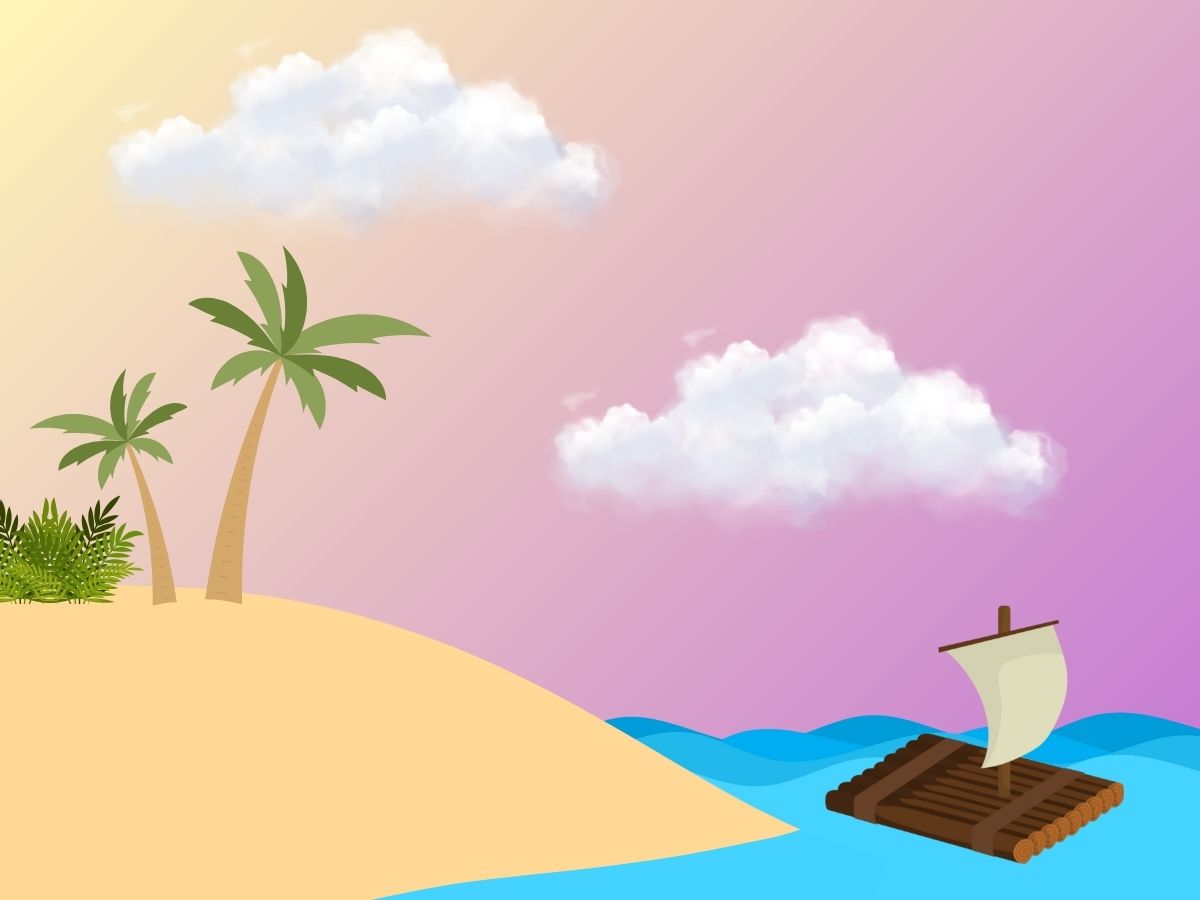
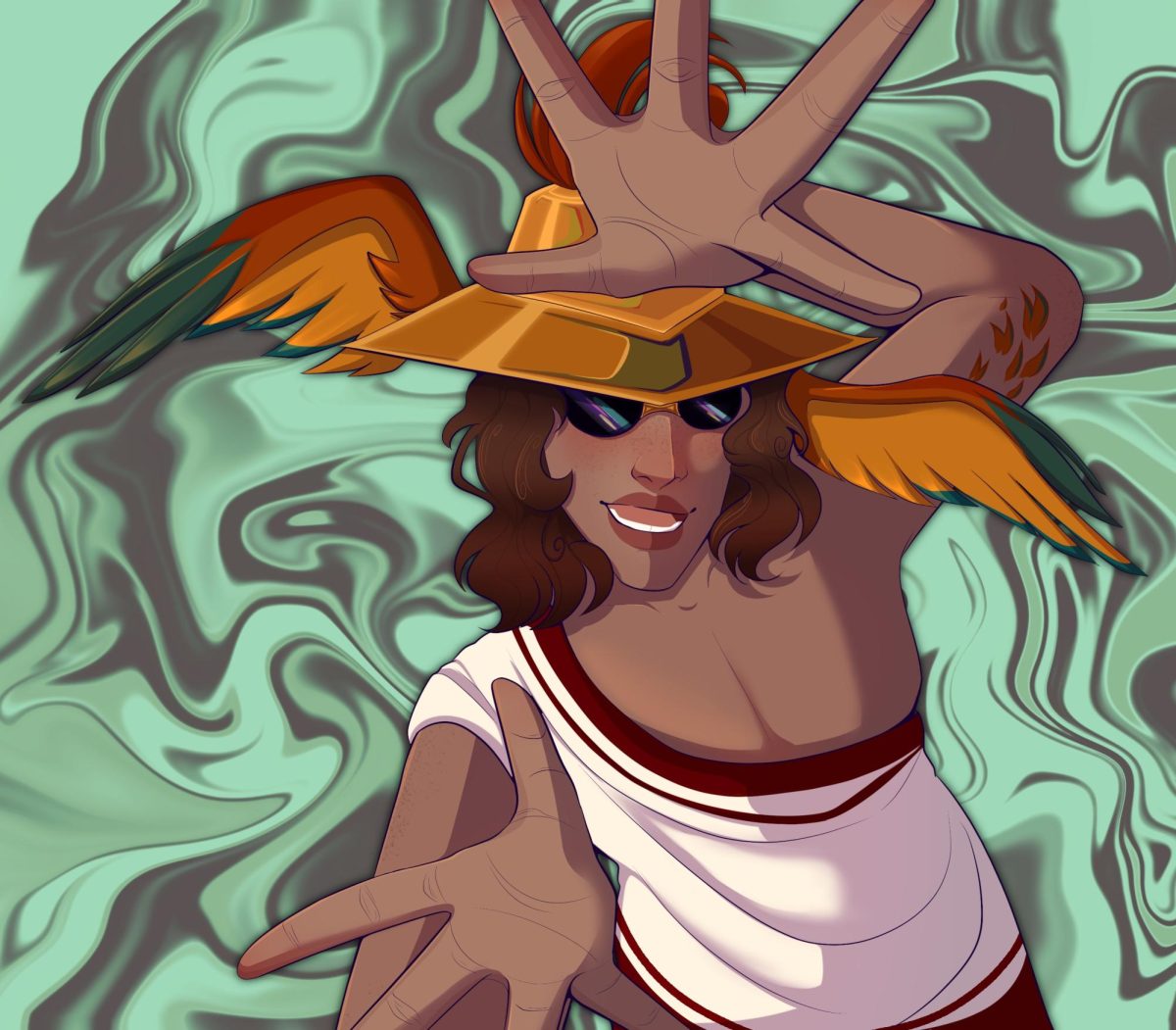
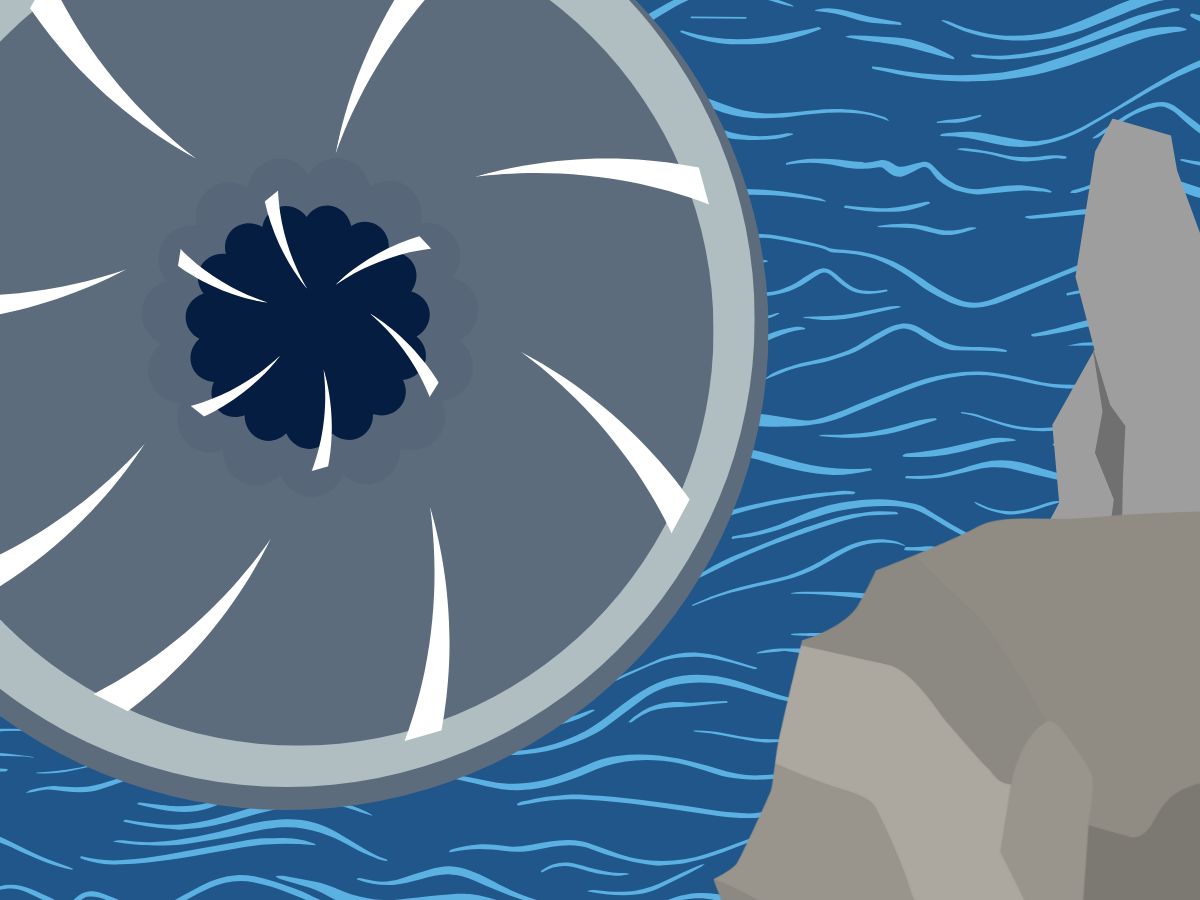
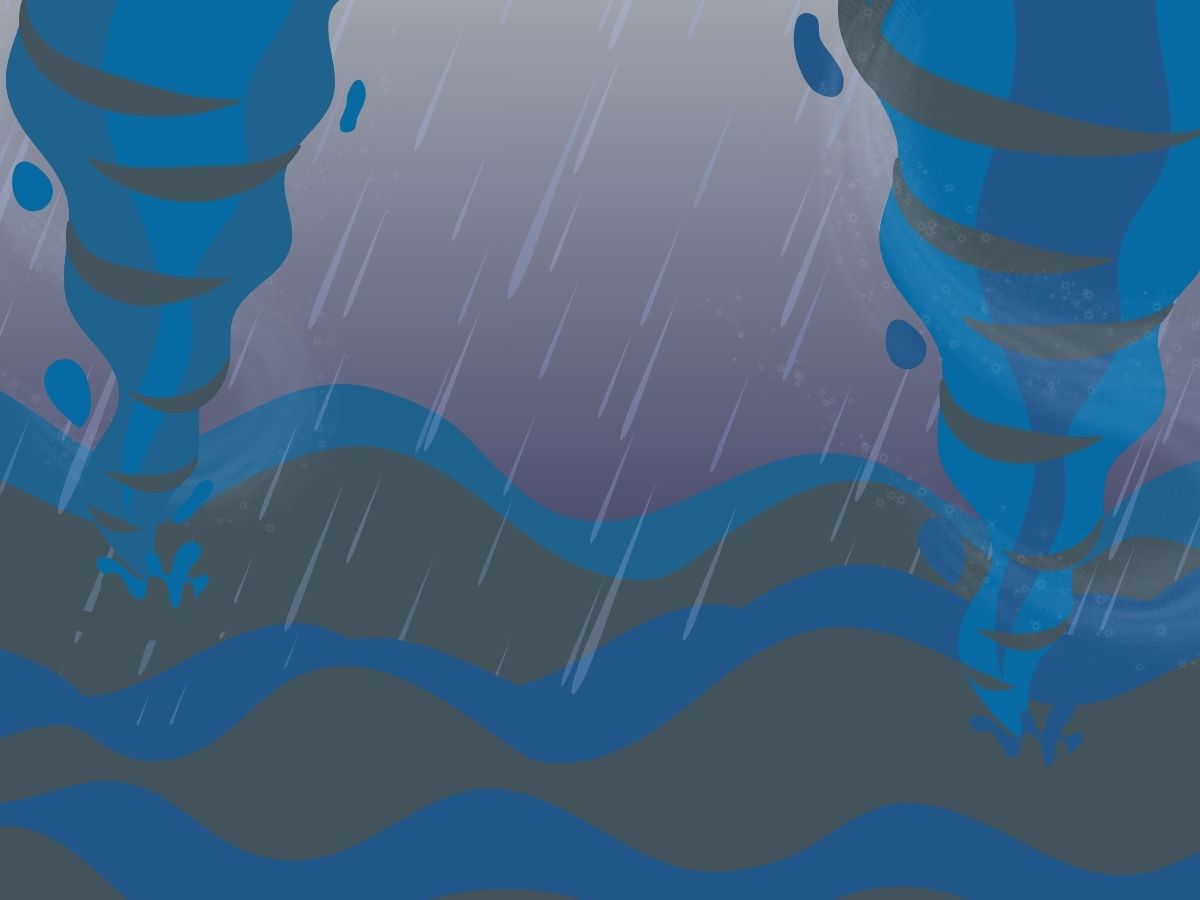
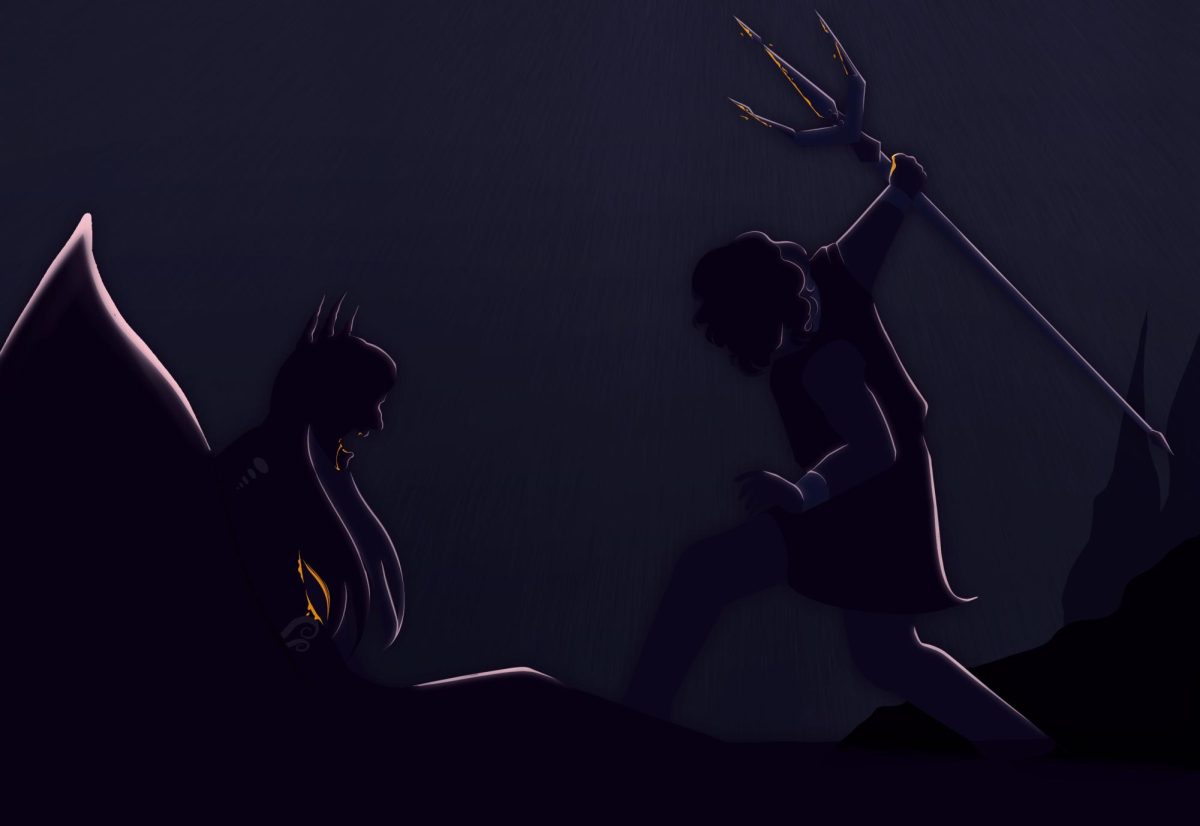
Struan • Nov 8, 2024 at 10:48 am
We popped off Luisa